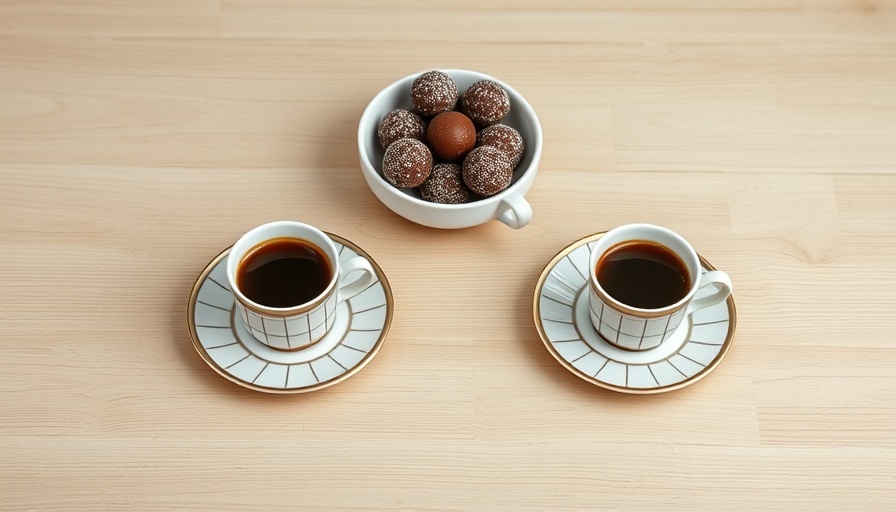
Embrace Minimalism: A Pathway to Personal Growth
In a world that constantly bombards us with messages suggesting that more is better, the choice to adopt minimalism can be both a radical and liberating decision. For many, minimalism symbolizes more than just decluttering a physical space; it represents a deliberate shift in focus towards what genuinely matters in life—relationships, experiences, and personal well-being.
Minimalism can significantly enhance mental health by reducing stress and anxiety linked to clutter and materialism. By letting go of the unnecessary, individuals find clarity, allowing more room for creativity, peace, and joy. This lifestyle empowers them to curate their possessions intentionally, adopting a mindset of gratitude rather than accumulation.
Understanding Impulse Buying: How to Curb Unwanted Habits
One crucial aspect of living minimally is addressing impulse shopping—a common challenge in our fast-paced culture. According to the article from Zen Habits, each purchase often stems from a desire to relieve stress or discomfort. Recognizing this connection allows one to develop healthier coping mechanisms, ultimately leading to greater financial freedom.
Techniques such as the 30-day rule, where you wait a month before purchasing a non-essential item, can help break this cycle. This waiting period promotes reflection and can often result in realizing that the desire to buy was momentary.
Lightening Emotional Load: 8 Regrets to Avoid
Marc Chernoff emphasizes in his article that holding on to excessive belongings can hinder personal growth. He outlines eight things to release, such as grudges and toxic relationships, to live a more fulfilled life. Every individual can resonate with these sentiments, knowing that emotional baggage often weighs heavier than physical items. By letting go, we create space for new opportunities and healthier connections, thus enriching our overall well-being.
Creating a Clutter-Free Home: Practical Tips
In the quest for minimalism, transforming the home environment is essential. The "10 Everyday Decluttering Tasks" article provides actionable steps to shift toward a tranquil living space. These small tasks can dramatically change the perception and functionality of home life, enabling residents to see their homes as sanctuaries that inspire peace rather than chaos.
By focusing on one area at a time, individuals can gradually see progress and feel motivated to continue their journey toward simplicity.
Fashion's Impact on the Environment: Re-evaluating Choices
Joshua Becker's article highlights the hidden costs of fast fashion, encouraging readers to invest thoughtfully in quality over quantity. Historically, every fashion trend has implications for the environment and one's wallet. By reducing dependence on fast fashion, we can cultivate a sustainable wardrobe that reflects our values and nourishes our well-being.
This mindset not only promotes sustainability but also nurtures self-identity and confidence through a curated personal style.
Conclusion: A Conscious Approach to Life
The collective insights curated in this weekend’s reads remind us that living intentionally can pave the way toward a healthier lifestyle. Each article reinforces that decluttering is not simply a physical process but an emotional and mental journey.
As soulful optimizers, we encourage you to engage actively with your surroundings and choices—eliminating what does not serve you and paving the way for growth and connection. Consider your own daily habits and ponder what changes you can make to live a more meaningful life. Don't hesitate to take that first step toward embracing the minimalist era.
 Add Row
Add Row  Add
Add 



Write A Comment